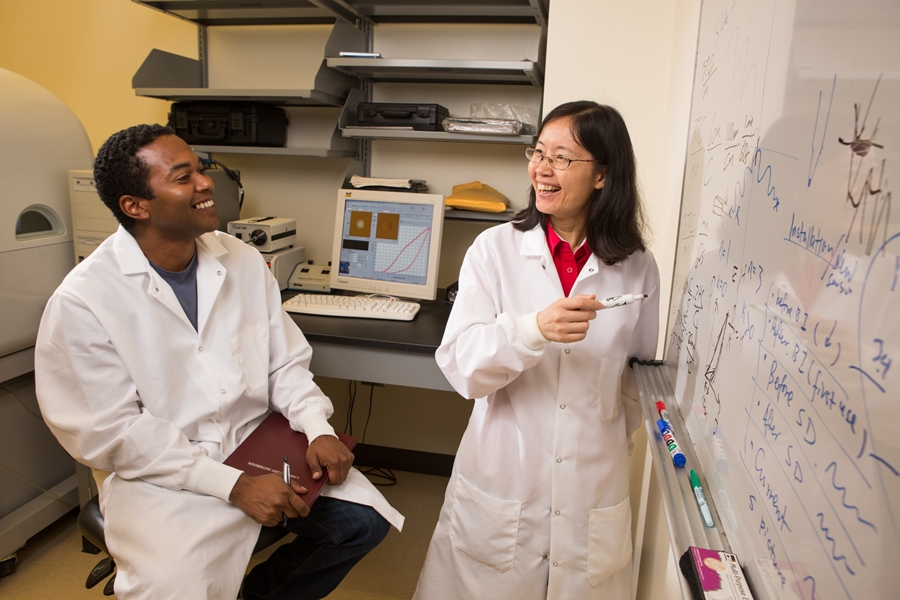
FAYETTEVILLE, Ark. – University of Arkansas researchers will receive a $450,000 grant from the National Science Foundation to further their study of a novel approach that significantly improves wear resistance of polytetrafluoroethylene coatings. Polytetrafluoroethylene (PTFE) is better known by its trademarked brand name: Teflon.
“Obviously, PTFE is a great material with many wonderful applications,” said Min Zou, professor of mechanical engineering. “But its coatings are easily worn because of their poor adhesion to substrates, and this severely limits its applications.”
.jpg) |
| Min Zou, University of Arkansas |
The funding will support the work of Zou and Jingyi Chen, assistant professor of chemistry in the J. William Fulbright College of Arts and Sciences. Zou and Chen are investigating a novel approach to improve wear resistance of PTFE coatings by incorporating polydopamine as an adhesive under layer. As part of the same project, to increase adhesiveness, the researchers are also studying the integration of polydopamine-coated nanostructures in both the under layer material and the PTFE coating.
The new approach will allow thin, wear-resistant PTFE coatings to be deposited on any substrate material without changing the underlining surface topography. Achieving this could promote the execution of a wide range of properties – such as self-cleaning, anti-fogging, anti-icing, anti-corrosion and others – that rely on surface topography and chemistry for proper function.
PTFE is used not only in cooking tools, but also has various applications in the energy, aerospace, automotive, oil and natural gas, health care and biomedical industries.
Zou, who holds the Twenty-First Century Professorship in mechanical engineering, serves as director of the statewide Center for Advanced Surface Engineering, which was created last summer with a $20 million NSF/EPSCoR (Experimental Program to Stimulate Competitive Research) grant and an additional $4 million matching funds from the state. The center promotes statewide scientific progress by establishing partnerships with government, higher education and industry.
.jpg) |
| Jingyi Chen, University of Arkansas |
In a different research project, Chen and a colleague at the University of Arkansas for Medical Sciences recently published their findings on an alternative therapeutic approach that uses polydopamine coated gold nanostructures to deliver both heat and the drug to successfully combating antibiotic-resistant infections.
About the University of Arkansas: The University of Arkansas provides an internationally competitive education for undergraduate and graduate students in more than 200 academic programs. The university contributes new knowledge, economic development, basic and applied research, and creative activity while also providing service to academic and professional disciplines. The Carnegie Foundation classifies the University of Arkansas among only 2 percent of universities in America that have the highest level of research activity. U.S. News & World Report ranks the University of Arkansas among its top American public research universities. Founded in 1871, the University of Arkansas comprises 10 colleges and schools and maintains a low student-to-faculty ratio that promotes personal attention and close mentoring.
Topics
Contacts
Min Zou, professor, mechanical engineering
College of Engineering
479-575-6671,
Jingyi Chen, assistant professor, Department of Chemistry and Biochemistry
J. William Fulbright College of Arts and Sciences
479-575-6203,